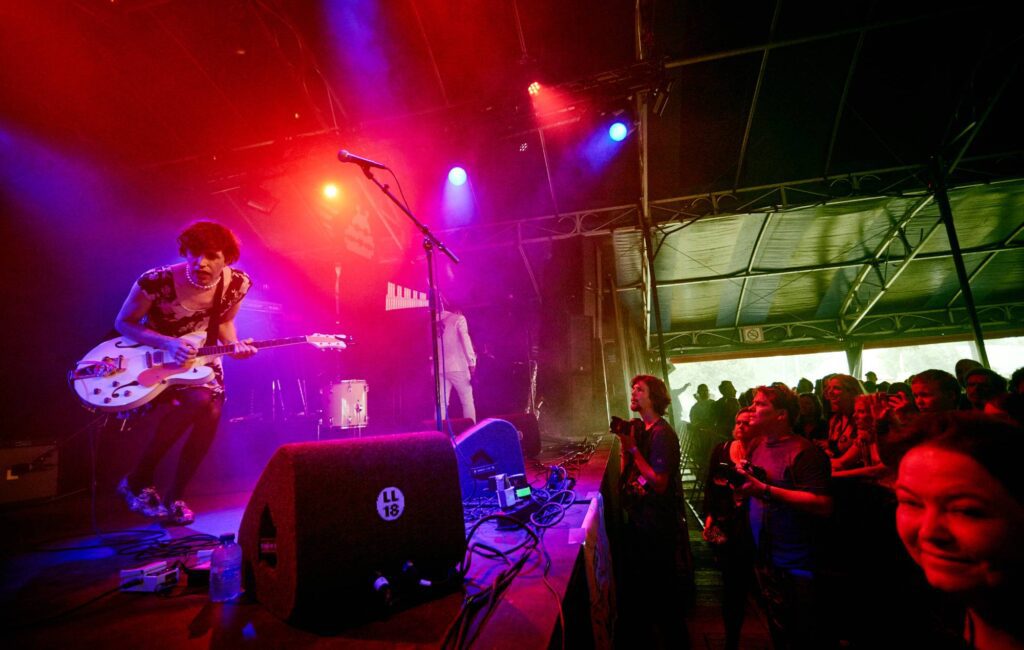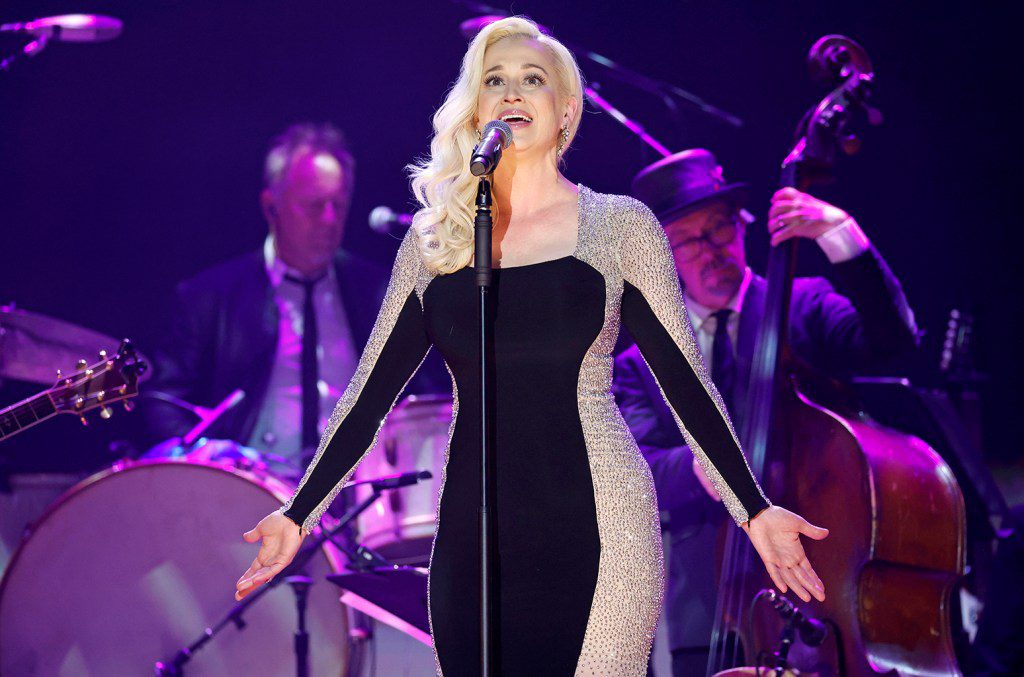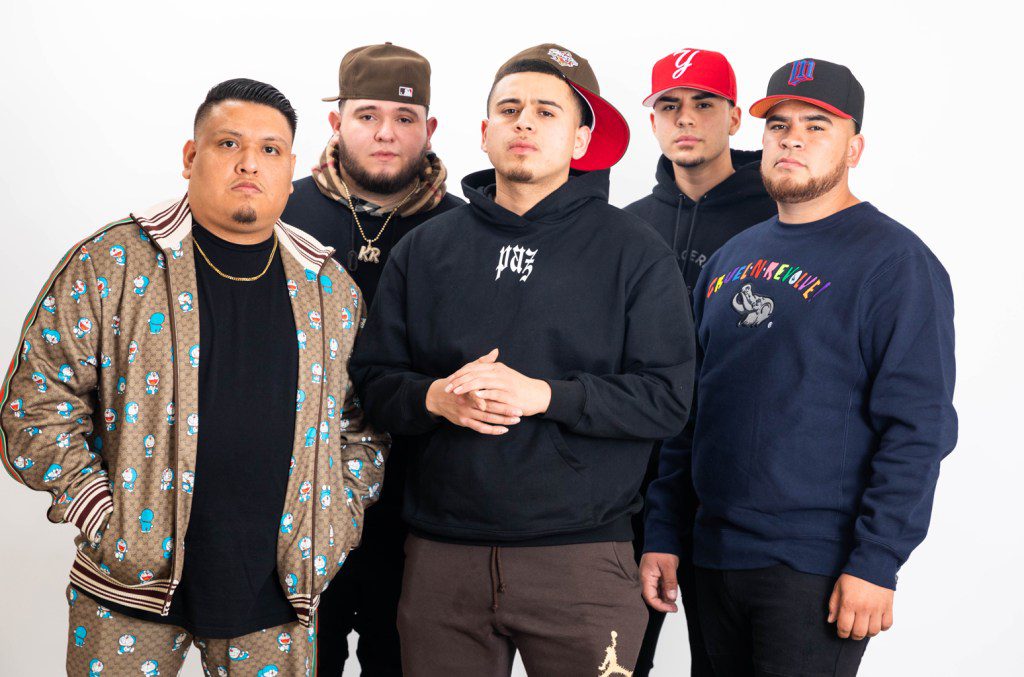European festivals warn that Brexit touring mess could see less UK artists booked to play | NME
European festival bosses have voiced fears that the current Brexit row surrounding touring musicians could prevent many UK acts from being booked to play events on the continent.
After Prime Minister Boris Johnson’s Brexit trade deal failed to secure visa-free travel for UK artists wishing to tour Europe (adding huge costs to future live music tours of the continent will be incurred and preventing rising and developing artists from being able to afford it), a row erupted over who was responsible.
Earlier this month, Culture Secretary Oliver Dowden put the blame for this at the foot of the EU following reports that a “standard” proposal that would exempt performers from needing a visa to enter countries in the EU for trips under 90 days was actually turned down by the UK government. Then, as the NME revealed, the EU then hit back – denying claims that they had rejected the UK’s “ambitious proposals” and that in fact it was on the contrary, arguing that they offered the UK 90 days of visa-free travel but neogitators responded with their own proposal of just 30 days.
Now, European festival bosses and artists have added to the concern and anger from artists and music industry bosses, calling on the government to “take this seriously and fix it”– as well as spelling out that the current lack of arrangements could mean less and less UK acts being booked for festivals across the channel.

Eric Van Eerdenburg is director of the legendary Lowlands Festival in the Netherlands and a former tour manager for acts across the UK and Europe. Speaking to NME, he said that the new extra costs, visa issues, carnets, paperwork and bureaucracy would prove “horrible and very limiting” for UK artists.
“Obviously, the UK music industry is very important for the European markets,” he told NME. “At Lowlands, we book the most bands from the UK. European artists are getting stronger though, and the percentage of bands from Europe is going up. Maybe this will be an extra impulse for smaller European bands because touring from the UK has become so difficult. We’ll have to wait and see.
“I think that if a band is really strong, then there will always be a promoter or a festival who wants to book them at the price that’s necessary to get them over – but it will be a lot less easy. If there’s a good offering from Europe for a better price but an equal amount of people buying tickets, then the choice will be European.”
He continued: “If we were at a festival and a band pulls out because of an accident or somebody’s ill or whatever, we could have called an English band to replace them and fix it in one day. This will now be impossible.”
While confident that European promoters would find ways to absorb the costs of bringing UK acts over if they deemed them worth it, Eerdenburg also called on governments to put their differences aside to find a solution.
“I think the blame here is for the UK politicians and negotiators,” he added. “They created an unequal playing field, so it’s only fair for the EU to say ‘Eat your own shit’. Still, I hope we can solve this in the next year, or before.”

Maja Starcevic is the main booker at EXIT Festival in Serbia. While Serbia is not yet a member of the EU (but negotiations are expected to be complete by 2025), Starevic also felt that the current lack of a deal for UK touring artists would have a knock-on effect for them across the continent – especially for new and developing acts.
“The Brexit deal is a big shame because everyone knows that the centre of European music is the UK,” she told NME. “It’s going to be a big loss for everybody. It’s going to make it very difficult to book new bands. There are emerging artists everywhere, and the UK usually has more promising acts than other countries, to be honest. The feeling at the moment is that they will be booked less, but it doesn’t need to be rule.”
While in Serbia, the complications arise more from getting live crew and bands’ equipment and trucks into the country rather than the artists themselves, Starcevic said that negotiations between the UK and EU needed to resume so that the festival scene could return as healthy as possible.
“Whether you make it political or not, the facts are going to be visible only for the festivals and the artists,” she said. “We can’t forget that what we’re doing isn’t about politics, it’s just about promoting music and it will be a major problem if the artists can not play our country because the crew and gear can’t travel or because they’ve been stopped somewhere else.”
She added: “We need to put the politics aside and find a common solution for this. I certainly hope that it will be possible. It would be most fair for artists, crew and their team to be able to travel without visas, just the same as when the UK was in the European Union.”

Jeremy Pritchard, bassist of Everything Everything and a member of the Featured Artists Coalition, agreed that touring without a visa-free “musicians’ passport” would mean that “the self-imposed sovereignty of British music will no longer be there”.
“There are huge markets in Germany and France where British artists have been able to dominate to an extent, especially on the festival circuit, but that’s just not going to happen anymore because the cost associated with getting a British act over to play or headline are just not going to be worth it,” he told NME. “Especially when you’ve got really great acts in Germany, France, Belgium, Eastern Europe and Scandinavia.”
“There are so many bands who thrive more in Europe. Look at a band like Editors, they’re so big in Benelux. Placebo are another band who are so big in Russia and the Baltic states. Hurts too, they play stadiums in Siberia and Eastern Europe. That’s their lifeblood and bread and butter. It’s going to be hard to create those acts again.”
There has been widespread anger from artists and industry leaders calling on the government to “take this seriously and fix it”, while last week saw the likes of Liam Gallagher, Ed Sheeran, and Elton John joining over 100 musicians in signing an open letter slamming the UK Government for having “shamefully failed” the music industry in Boris Johnson’s Brexit deal.
Fans continue to sign the 280,000-strong petition and write to their MPs calling for visa-free travel for musicians and crew to be established. After ministers have today rejected the idea – insisting that “taking back control” of borders is their priority and that talks would only resume if Brussels “changes its mind” – MPs have now agreed to debate the matter in Parliament on February 8.
Music industry insiders have also warned that the current Brexit deal could prevent UK artists from being able to play in the US, claiming that if talent is unable to acquire “international recognition” through the usual channel of playing neighbouring European countries with ease, then this could make them ineligible for a visa in the States.





